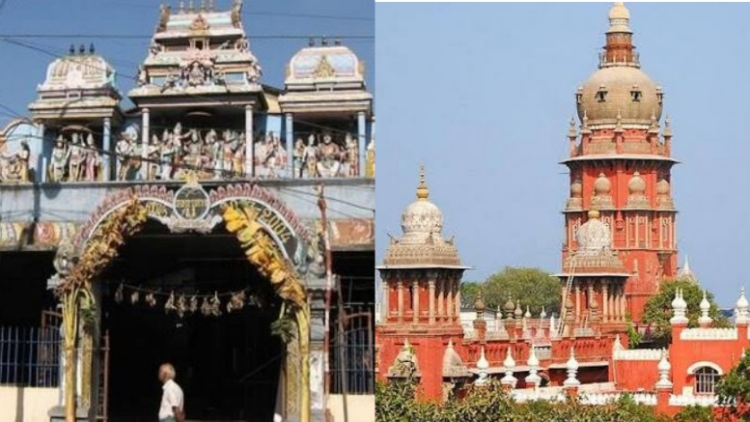The Madras High Court, on April 27, has set aside the order of the Hindu Religious and Charitable Endowment (HR and CE) to take over the administration of Ayodhya Mandapam and appoint a fit person to look into the management of the Sri Ram Samaj.
The DMK dispensation, during its 11 months of rule, targeted and demolished over 150 Hindu temples without following due process of law. It did so only to appease the minorities. On the Sri Rama Navami day, the police and officials sealed the Ayodhya Mandapam premises despite protests from Hindu Munnani, VHP, BJP and local Hindus. Ayodhya Mandapam is a well-known landmark spiritual centre in West Mambalam.
The Madras High Court on April 26 said it would pronounce orders on 27th on a writ appeal filed by Sri Ram Samaj against the recent dismissal of its 2014 writ petition challenging a 2013 HR&CE department order of appointing a fit Person to manage its affairs.
First Division Bench of Chief Justice Munishwar Nath Bhandari and Justice D. Bharatha Chakravarthy set aside the single judge VM Velumani order and asked HR&CE to hand over the administration of the Ayodhya Mandapam to the Samaj along with the records. It said Advocate General would be authorised to select the inquiry officer, and the A-G replied that even a retired judge could be asked to conduct a fresh enquiry and proceed afresh after following the due process of law. It directed the Samaj to keep all documents after proper audit and carry out all its transactions through banks. The bench faulted that the single judge had not considered the merits of the case and merely dismissed the petition citing the existence of alternate remedies. It opined that the HR and CE order was passed without following the procedure of natural justice. The judges said it was a society under the Registration Act, and it does not come within the definition of a temple under the HR and CE act 1959.
The bench said, “In exceptional circumstances, the court has jurisdiction under Article 226 of the Constitution to entertain a petition even when alternative remedies are available. In the present case, what was challenged by the Samaj was the manner in which the order was passed by the department.”
Earlier senior counsel for Samaj, Satish Parasaran, argued a few senior citizens created it with their hard-earned money and they had got it registered as a society in 1958. He also said the activities of the Samaj were largely secular in nature and is running a matriculation school, a marriage hall, a centre to perform the obsequies (Gnanavapi) and managing Ayodhya Mandapam where people congregate to listen to spiritual discourses, bhajans etc. “Since 2004, a “disgruntled” member of the Samaj had been making complaints against its office-bearers to the HR&CE department,” the council said. Parasaran said, “The Supreme Court had categorically held that a place could be termed as ‘temple’ only if the idols had been consecrated as per Agama Sastras and have a flag mast and tower.”

















Comments